|
10/7/2016 Infographic: 5 Signs of Financial Abuse Lavender Williams received her Bachelors of Science degree in Psychology from Lynchburg College in 2015. She is currently beginning her second year as a Masters student in the Couple and Family Counseling program at the University of North Carolina at Greensboro. 8/18/2016 She Loves HimPoetry by Javiette Grant, See the Triumph Guest Blogger
Battered at 17, he was her sweetest dream turned sour. Her family used to sit her on a throne, but a baby makes you grown so she’s all alone. She wrote me a letter and said let me explain. She said before you judge me, feel my pain. I’m trapped in a box of confusion, where the sky has a limit, dreams are deferred, and thoughts are diminished; but I played the cards that were dealt to me, he is the only one who stayed next to me. She loves and she hates him. She loves him because he allows her to be who she wants to be for free, but what is the price for pain? She hates him because he will take her smile and sell it for less than its worth. She hates because he found her innocence and misplaced it in a land where only weeds grow. But she loves him, and she hates him. And if you can’t see the correlation than you are blind because love and hate go hand in hand like hot and cold, like weddings and funerals, like graduations and baby showers, we are growing up too soon. But she loves him. And she hates him. She hates him because he can look her in her eyes and lie, turn around, beat her, and watch her cry, knowing that he doesn’t deserve her but he loves her. Or does he? She knows that she’ll forgive him in the morning and over breakfast she’ll eat her expectations, swallow her regret, and stare disappointment in the face, Good morning. She hates him because he is a weakness that will never really make sense. She hates him because even when she’s sleeping he invades her mind like a bad dream that she can’t wake up from. They probably shouldn’t be together but sometimes she wonders if a love affair could last forever. So when you see the girl walking down the street with the faded smile, don’t judge her, reach out and hug her, or hold her or give her a look that says “you are stronger than you know” because even dandelions forget that they are beautiful. Javiette Grant is a 23-year-old from Charlotte, NC. She graduated in 2013 from The University of North Carolina at Greensboro, where she received her Bachelor of Arts degree in Communication Studies with a minor in Sociology. She currently is pursuing her Master's degree at her alma mater in Couple and Family Counseling. 8/16/2016 No One is Entitled to Your Body But YouBy Kelsey Doucette, See the Triumph Guest Blogger When you think of the phrase ‘marital rape’ what sorts of words come to your mind? Violating? Terrifying? Betrayal? Trapped? These were the words that came to my own mind when I imagined if the person I decided to marry, trust with my heart, and spend my life with would force me to have unwanted sex. How could your own spouse be the person that shatters you into a million pieces and uproot any sense of trust you have in them? How could someone believe they have the right to my own body? People who are raped by their spouses often have a rapid fire of questions in their mind and an intense feeling of shock. Up until 1993, rape within a marriage was the exception in any rape case. If the rape occurred between a husband and wife, the case was essentially thrown out. That means that marital rape has only been considered illegal outside of a marriage for about 23 years. However, 13 states still make exceptions for marital rape cases (“These 13 states...”, 2015). These states have vague requirements for what constitutes marital rape, have less severe consequences, and/or make it difficult for the spouse to prove rape occurred. The belief that a man has the right to his wife’s body upon marriage comes from an underlying, archaic thread woven through our society headed by patriarchal ideals. As far back as 1736, an English jurist, Sir Matthew Hale, made this statement: "But the husband cannot be guilty of a rape committed by himself upon his lawful wife, for by their mutual matrimonial consent and contract the wife hath given herself up in this kind unto her husband which she cannot retract” (Withonef, 2015). This shows just how far back the misunderstood issue of marital rape reaches. So, you would think after about 280 years everyone would be on the same page with marital rape and how completely illegal it is based on LAW. Think again. In 2015, allegations arose from Donald Trump’s ex-wife Ivana that he had raped her during their marriage. Mr. Trump’s attorney proceeded to release a statement reading, “You cannot rape your spouse…and there’s very clear case law” (“Meet the marital rape...”, 2015). Earlier, in 2008, an activist named Phyllis Schlafly, who was highly involved in Republican political affairs such as delegating for 8 national conventions, said “I think that when you get married you have consented to sex…That’s what marriage is all about, I don’t know if maybe these girls missed sex ed” (“Meet the marital rape”, 2015). Clearly there are people still today who do not understand that marital rape is, indeed, rape. No one should be able to tell you what to do with your body, when you want to have sex and who you should have sex with except for YOU. If you take anything away from this, remember that you are in control of your own body, and no man or woman--even if you married them--should take that away from you. Works Cited
 Kelsey Doucette is a graduate student pursuing a Master’s degree in Couple and Family Counseling at the University of North Carolina at Greensboro. By Christine Murray, See the Triumph Co-Founder
Today’s blog post is for anyone who is currently in an abusive relationship who has tried reaching out for help, but when you did so, you were met with an unhelpful (or worse, harmful) response from the person you reached out to. Unfortunately, this is an all-too-common occurrence for people when they reach out for help. We’ve heard it countless times from many of the hundreds of survivors of past abuse who participated in one of our research studies. Some of the survivors told us that, when they reached out for help, they were judged or blamed for their abuse, such as by being questioned about what they did to bring it on. In other cases, however, friends and family members simply didn’t know how to help, and therefore they provided less-than-helpful responses. Unfortunately, even professionals may lack awareness about the dynamics of abuse, as training on this issue may be lacking among certain professional groups. So, what should you do if you’ve reached out for help because of abuse you’re experiencing, and you’re met with an unhelpful or hurtful response, whether it’s from a friend, family member, professional, or anyone else? Here are some suggestions for moving forward. First, know that you’re not alone. Again, it’s not uncommon to encounter unhelpful or hurtful responses when you seek help related to an abusive relationship. Of course, just because this happens doesn’t mean it’s okay! In fact, I believe it’s a tragedy every time this happens. You deserve help and support, not judgment and blame. Keeping in mind that you’re not the first person to encounter an unhelpful response when seeking help for an abusive relationship can help you know not to take this experience personally. You are not to blame for your abuse--nobody deserves to be abused! Remember, when people judge or blame you, that their response says more about them than it says about you. If this happens to you, you can remind yourself that this unhelpful person most likely doesn’t understand the dynamics of abusive relationships. Acknowledge your feelings about the unhelpful response--it’s normal to be very upset if this happens!--but keep telling yourself that you don’t have to let it hold you back from moving forward toward safety. Second, remind yourself of the strength and courage it took you to seek help in the first place. We know it can be very difficult to reach out for help if you’re in an abusive relationship. Many people who are in abusive relationships hide their abuse for a long time--years, even--before they reach out for help. There are a lot of reasons why people may wait to seek help, such as being afraid of being blamed, being threatened by the abuser, not knowing where to turn, and not feeling certain whether to end the relationship. It’s normal to be afraid to reach out for help. And, it takes a lot of courage to do so. If you reached out for help, and you didn’t get the help you needed, it’s natural to feel discouraged. You may even wonder if it was worth reaching out for help in the first place. Even in the midst of these feelings, try and remind yourself how brave you are for taking that first step toward taking care of yourself and reaching out for support. There were a lot of forces working against you to hold you back from taking that step--the fact that you did it is a testament to your courage and strength. That courage is still inside you, no matter what response you received when you reached out. Third, tell yourself that you deserve to be supported by helpful, informed people and organizations that will help you get safe and get the resources you need. Ideally, any person who is in an unhealthy or unsafe relationship would easily be able to reach out for help, and they would find countless supportive resources at their disposal. When you’ve been in an abusive relationship, you’ve likely experienced a good deal of trauma and hurt along the way. I believe that people who’ve been traumatized deserve the very best support and resources available. There are many wonderfully supportive resources available to help you, but it may take some time and effort to locate the exact resources that will be most helpful to you. Even if you encounter some unhelpful reactions along the way, keep reminding yourself that the support you need is out there, and you deserve to receive it. Fourth, if possible, find a supportive person to help you navigate the process of seeking help. This may sound like a counter-intuitive suggestion for a post on navigating unhelpful responses when you’re seeking help. Also, it’s normal through the process of an abusive relationship to become isolated and separated from your friends and family members, as this is often a part of an abuser’s tactics to keep someone in the relationship. So, it may not be possible to find a supportive person around you, or you may not know where you can turn to find someone. But, if you can think of someone who’s asked you if and how they can help you, one way they could support you is by helping you to navigate the process of getting help. For example, they could come along with you to meet with a victim advocate, to fill out the application for a domestic violence protective order, or to file a police report. If you don’t have any friends or family members available to be in this role for you, consider seeking help from a victim advocate at your local domestic violence agency or by calling a resource like the National Domestic Violence Hotline (http://www.thehotline.org/; 1-800-799-7233) to help you navigate the process of seeking help. The main point to remember here is this: You’ve been through a lot in your abusive relationship, and this can leave you feeling tired, overwhelmed, and discouraged. If you can find a supportive person to stand by your side as you seek help, they can help you navigate that process and provide you with encouragement along the way. Fifth, consider all your options of resources for seeking help. The resources available to help people in abusive relationships vary from community to community, and in certain areas (especially rural ones), there may indeed be a lack of helpful resources nearby. However, there are a wide range and many different types of resources that may be available to you, including at the national, state, local, and organizational levels. National resources include advocacy organizations, the National Domestic Violence Hotline, Internet-based social media resources and support groups, and web-sites with educational information about the dynamics of abuse. State resources include state domestic violence and/or sexual assault coalitions and governmental agencies. At the local level, resources can include law enforcement agencies, court-based resources, domestic violence advocacy organizations, mental health agencies, and support groups. Organizational resources that may be available to you include those offered by your workplace, school, and faith-based organization. And, consider if you know anyone in your social network who may be able to provide more informal support, such as a friend or family member who has experienced abuse and understands what you’re going through. Once you've sorted through all your options, decide which ones may be most helpful to you right now, and try to figure out the best, safest place to start. Sixth, keep trying until you get the help you need! If your first attempts to get help aren’t successful, or they don’t provide you with the support you need right now, keep trying. I know it can be very hard to stay persistent in seeking help when your initial efforts don’t pay off, but we heard a lot of examples from the survivors in our research how they continued their efforts to seek help and eventually found one or more supportive people to help them. Again, even though it can be hard to do this, try not to take unsupportive responses personally, and reach out to another source of support until you find someone who will be there for you and offer you support without judgment. If ever you feel that a professional you encounter along the way treated you in an unprofessional, harmful manner, you may want to consider talking with their supervisor. However, that step may be more than you are able to take on right now. Focus first and foremost on taking good care of yourself and continuing to take steps toward becoming safer. Unfortunately, we still live in a world in which, sometimes, people who’ve been abused don’t initially get the help and support they need. This can be very discouraging, but it doesn’t have to be the end of the story. Help and support are available to you, and you are worthy of receiving it! By Christine Murray, See the Triumph Co-Founder
A safety plan is a basic tool that victims of domestic violence can use to identify risks to their safety and well-being and plan strategies for protecting themselves in the face of those risks. A couple years ago, my Family Violence Research Group at the University of North Carolina at Greensboro developed the Safety Strategies: Safety Planning for Survivors of Domestic Violence and Their Children booklet as a resource for professionals to use to conduct safety planning with their clients who face domestic violence. Our goal was to use the information we learned through our research with professionals working with 9 domestic violence agencies to present a comprehensive, practical approach to safety planning. Ideally, safety planning is done with professionals who have experience working with victims and survivors, because they are trained to help survivors identify the most pressing risks and helpful strategies to reduce those risks. If you or someone you know is currently experiencing domestic violence, I recommend you reach out to the National Domestic Violence Hotline (http://www.thehotline.org/; 1-800-799-7233) and/or a professional in your local community to walk through the process of developing a safety plan that reflects your current circumstances. Based on the Safety Strategies booklet, we offer the following safety planning suggestions to help people who are currently facing safety risks due to a current or former abusive relationship:
By Christine Murray, See the Triumph Co-Founder
At See the Triumph, one of our main goals is to end the stigma surrounding intimate partner violence. We’ve heard in our research that this stigma is very real, and it impacts survivors of abuse while they’re in the relationship and can continue long after it ends. We know that this stigma can exist within individuals, families, organizations, communities, and in the society at large. Ending the stigma is a huge task, and we believe that it’s going to take a long-term, concerted effort by a vast network of organizations and individuals working together to really make this happen. Recently, my See the Triumph Co-Founder, Allison Crowe, and I completed a study to learn from a national panel of experts about the changes they believe need to happen in order to fully end the stigma surrounding domestic and sexual violence. We used what’s known as the Delphi research methodology, which uses multiple rounds of surveys with a panel of experts in order to come to a consensus in beliefs about the topic being studied. Due to the confidentiality requirements of the research process, we can’t identify the national leaders who participated in the study. However, we can share that they represented a variety of national advocacy organizations that address domestic and sexual violence. All together, 16 participants took part in at least one of the three surveys included in the research. We asked the participants to share their thoughts on the strategies they believe are most needed to eradicate the stigma surrounding domestic and sexual violence. Our research process then narrowed in on seven strategies that reflected the leaders’ beliefs. These strategies were as follows:
When I think of the large-scale transformation needed to truly end the stigma, I am both excited and intimidated. I’m excited because I know that these changes are possible, and I’ve met so many people doing great work toward this goal. I’m intimidated, however, because I know how big a task lies before us. Transformation can occur in large-scale sea changes, but it also can occur in incremental steps over time. Breaking down large-scale tasks into smaller, more manageable steps usually helps them to become more manageable. With that in mind, I invite you to look back over the 7 strategies suggested by the leaders in our study. What is one small step based on one of the recommendations that you could address right now? I invite you to share your reflections on this list, as well as the steps you take, in the comments below! 1/10/2015 A Snowball of Abuse AwarenessBy Claire Cappetta, See the Triumph Contributor It is that time of year again when everyone wishes people a “Happy New Year.” We start to think about the next twelve months as they stretch out before us, wondering if by the time the New Year rolls around again, any big changes may have happened in our lives. Our thoughts drift to resolutions, most of which are quickly broken within hours, even minutes. If we are really strong we can sometimes, make them last a few days. What changes can we make? What difference, however small, can we bring to this world we live in, our world? Some changes can seem so small, like snowflakes. But those small snowflakes all add up, turning into a pure, white blanket covering the ground. Beautiful, fun, and sometimes difficult. When we become involved in social media it can seem overwhelming to have our voices heard. There are so many people now, all looking to make a difference, which is a good thing, but we can get drowned out in the noise. It is akin to walking into a room, and everyone is talking and few are listening. We need to remember, though, that just like snowflakes, it all adds up. If we keep pushing, talking, singing and dancing, people do stop to listen. January for me is a very special month. It is Stalking Awareness Month. There are too many times when an abused person leaves an abuser, and the abuser then turns to stalking. One in 6 women and 1 in 19 men have experienced stalking in some way, that’s 6.6 million people in the United States alone, according to the Stalking Resource Center’s Statistics for 2014. It’s terrifying to be stalked. There’s a knock at your door, constant phone calls. Your house is under constant surveillance, as are you. A car follows you wherever and whenever you go anywhere. Now with social media, your sites become constantly monitored, and if you are completely unlucky, like I was, there is always the one aspect we dread… The break in or being held hostage. I was lucky I escaped with a lot of emotional baggage, bruises. My PTSD has escalated now, as I was paranoid, as well. The panic attacks, mind crashes, startling at any small noise were all part of my daily life of survival. I owe my life to one best friend, one policeman, and my own efforts to keep my wits about me, while I organized and made changes in my life to escape, to move many miles away. I was told he would kill me if I stayed, and I believed it. Now, I am safe. I have lost a lot, but I have also gained. I lost being able to see my children grow into wonderful people, and I have lost family members. For a long while, I lost trust, friendship, and love. These I have gained back over time. I learned how and who to trust, love and become friends with. I am left feeling that I owe something, and sometimes it’s an overwhelming desire to give back because I am alive. Who do I owe something to? My best friend, of course, but I feel something much deeper too. My stalker was there before the Internet, before emails and social media, with its knowledge and support groups. It was a lonely time, but we can raise our voices on it now. We may not become viral, like fluffy kittens playing on Facebook, but we can be beautiful like snowflakes, collecting together and making a blanket of awareness that people start to notice. January is a busy time for me now. I’m organizing a Stalking Awareness Event in my local area. There will be speakers talking about awareness and safety. A friend will be there teaching line-dancing, and there will be amazing indie-rock songs from another. A local store has already collected two large bags of clothes to donate to survivors to help them get back into the workplace. Our collective need to help people feel safe is now extending more online, with webinars filled with song, dance, talks about survival and what “Finding Our Inner Happiness” is all about. Christmas is when we always think about giving, New Year is for new starts, but maybe if we think about starting anew and giving throughout the year, we can be like snowflakes, amalgamating slowly into something much bigger and more diverse. A Snowball of Abuse Awareness…. Because that’s just how we roll!
By Maxine Browne, See the Triumph Contributor
Healing is a journey. When you’re on the road to healing, it doesn’t feel like you’re getting anywhere. You may feel stuck. But you are moving forward. Trust me. My ex took everything from me. He stripped me of my friends and my family. Then, he separated me from my children. He took my money, my career. He took my sense of self. He told me I was fat, ugly and stupid. He said it, and I believed it. I was brainwashed. Controlled. Silenced. Erased. I became so depressed, I planned my suicide to escape my mental anguish. When I left I was mad. Mad at God. Mad at my ex. But most of all, I was mad at myself. How did I get here? How could I have allowed this to happen? How could I have been so naïve? These questions repeated themselves inside my head during the day and kept me awake at night. If anyone mentioned religion, look out! As a minister’s wife, I blamed God for my suffering. Why hadn’t He protected me? After all the prayer and fasting, begging God to save my marriage, I thought He would part the Red Sea, come into our living room and rescue me. Instead, the minister I was married to cursed me in the name of God, used the congregation to pressure me, quoted Scripture in twisted ways to force outcomes in his favor. He used my faith as a weapon of control. Friends and family asked, “How can you leave the church? How can you blame God?” My answer today would be that this was one phase of my healing journey. It was like a town I passed through on a road trip. I hadn’t moved there. For a season, I cursed like a sailor. I spoke with a sharp tone of voice. I was sarcastic and skeptical of everyone and everything. I had castle walls around me for protection. I rebelled against my supervisors. I struggled, but I kept moving forward. I sought therapy and rebuilt relationships. I created a new life. And with each step forward, I softened. There are many points of view when it comes to forgiveness. Some believe that if you forgive someone who wronged you, it’s as though you’re saying the pain they caused wasn’t that bad. I’ve heard some say that the abusers don’t deserve such kindness and generosity. In my view, forgiveness has nothing to do with the person who hurt you. Forgiveness is about you. I like what Buddha said, “Holding onto anger is like drinking poison and expecting the other person to die.” Unforgiveness poisons you, not them. It traps you in the ugly past. Forgiveness sets you free and allows you to walk away and begin anew. I have forgiven my ex. That doesn’t mean we’re buddies. We don’t hang out together. I have no contact with him, unless I must attend a graduation, wedding or funeral. Trust me, that’s more than enough contact for me. I avoid him, but I’m not angry anymore. I’m not mad at God nor do I blame God for those years. I now understand that He created us all with free will. My ex chose to abuse his authority and not even God could stop him from doing what he wanted to do. I may cuss from time to time, but it’s not the same. I’m at peace. My problems with authority figures have dissolved, and I even married again, something that was unthinkable a few years ago. It’s been a journey. So, you may feel a certain way today. Don’t be hard on yourself. Keep taking steps forward. You’ll be amazed in a few years just how far you’ve come! Happy healing. Maxine Browne Maxine Browne uses her inspirational story as a keynote. She facilitates workshops on domestic violence and healthy relationships. Other workshop topics deal with life after divorce, co-parenting and spiritual abuse. Maxine co-authored the International Best Sellers, The Missing Piece and The Missing Piece in Business. She is the author of Years of Tears, the story of her family’s journey through domestic violence and recovery. Contact Maxine to speak at your next event at [email protected]. Visit her website at www.maxinebrowne.com. Years of Tears is available on Amazon by following this link: http://tinyurl.com/mljqmyn 1/4/2015 Two Years In, and We're Still Just Getting Started: Reflections on Two Years of See the TriumphBy Christine Murray, See the Triumph Co-Founder
New Year’s Day marked the two-year anniversary of See the Triumph. When we launched See the Triumph on January 1, 2013, we were entering into uncharted waters, and looking back, I don’t think we ever could have envisioned the many blessings and challenges we’ve faced along the way...so far. And “so far” is the key--we are proud to reach this two-year milestone, but we know that our work is really just getting started. Our work has just begun because the stigma surrounding intimate partner violence (IPV) is so pervasive. Thankfully, there are many other individuals and organizations working every day to challenge the stigma surrounding IPV: Every time a survivor shares their story with others, whether publicly or in one-on-one conversations, the stigma is challenged. Every time a friend or family member reaches out to help someone they care about who is facing abuse, the stigma is challenged. Every time a community organization holds events or shares resources about domestic violence, the stigma is challenged. And every time a national advocacy organization works on a campaign to raise awareness about domestic violence, the stigma is challenged. We view our work with See the Triumph as part of the fabric of these larger efforts at the local, national, and global levels. We remain committed to an ongoing program of research and advocacy efforts to understand, address, and ultimately end the stigma surrounding IPV. When we first stated See the Triumph, we were focused primarily on disseminating our research. As we’ve grown and built important relationships and connections with survivors, advocates, and others, we’ve come to see the advocacy work as most central to our work with See the Triumph. We first were inspired to create See the Triumph because of the powerful stories we heard from participants in our research. Now that our research has grown to include hundreds of survivors across multiple studies, we continue to be inspired and learn so much from each new participant in our research, as well as from the many survivors, advocates, and others who’ve become part of our See the Triumph community across our various social media platforms. Although we can’t respond individually to everyone who contacts us, we try to respond to as many as we can manage, and we appreciate every kind and supportive person who we’ve heard from who has encouraged us to continue our work. As I reflect on our first two years, and especially on this month’s theme of “Transformative Approaches to Ending Domestic Violence and Abuse,” I remember why we started See the Triumph to begin with. The stigma surrounding IPV is a major problem that has implications for survivors (including while they are in the relationship and afterward), professionals who work with them, and organizations that serve survivors and work to hold offenders accountable. More broadly, the stigma around IPV has detrimental effects for the society as a whole. The costs of IPV on society are high and affect virtually every social system and organization in our communities. The stigma surrounding IPV keeps this issue hidden despite these costs, and it prevents effective responses and preventive efforts from becoming widespread. And, the stigma makes it more difficult for individual survivors to get the support they need to move toward safe, healthy, nonviolent lives and relationships. The further along we’ve gotten with See the Triumph, the more I’m convinced of the need to end the stigma surrounding IPV in order to really transform the way that violence is prevented and addressed in our society. Looking ahead to our third year and beyond, we’re excited to continue building upon what we’ve started these first two years. We have plans for expanding in new directions this coming year, but we also remain committed to the heart of the work we started with--sharing the inspiring stories of strength and triumph that survivors share with us through our research. We hope you’ll continue to share your ideas, successes, challenges, and triumphs with us as we move into our third year with See the Triumph! Your support means so, so much to us. We know the work ahead of us remains large. But we are so thankful to all of you who have supported us, partnered with us, and connected with us around our goal of transforming our society into one that wraps survivors of abuse with support and care and that is free from stigma surrounding IPV and other forms of abuse. |
Archives
July 2024
CategoriesAll About Intimate Partner Violence About Intimate Partner Violence Advocacy Ambassadors Children Churches College Campuses Cultural Issues Domestic Violence Awareness Month Financial Recovery How To Help A Friend Human Rights Human-rights Immigrants International Media Overcoming Past Abuse Overcoming-past-abuse Parenting Prevention Resources For Survivors Safe Relationships Following Abuse Schools Selfcare Self-care Sexual Assault Sexuality Social Justice Social-justice Stigma Supporting Survivors Survivor Quotes Survivor-quotes Survivor Stories Teen Dating Violence Trafficking Transformative-approaches |
Search by typing & pressing enter


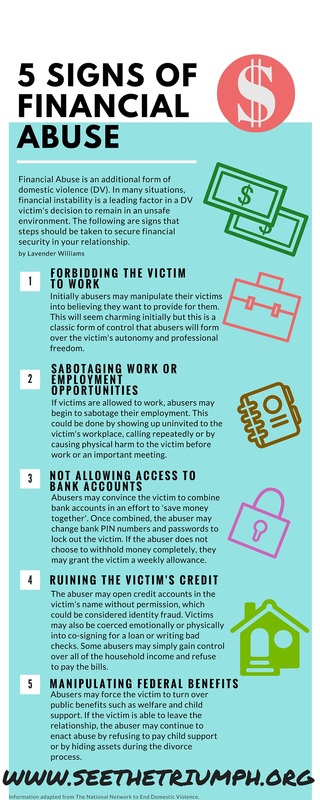
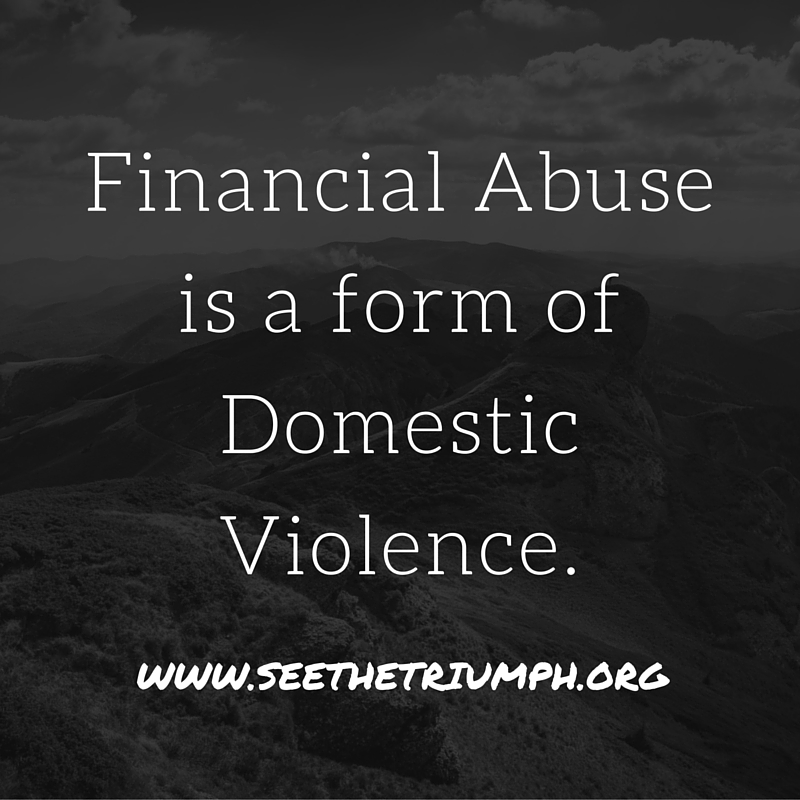
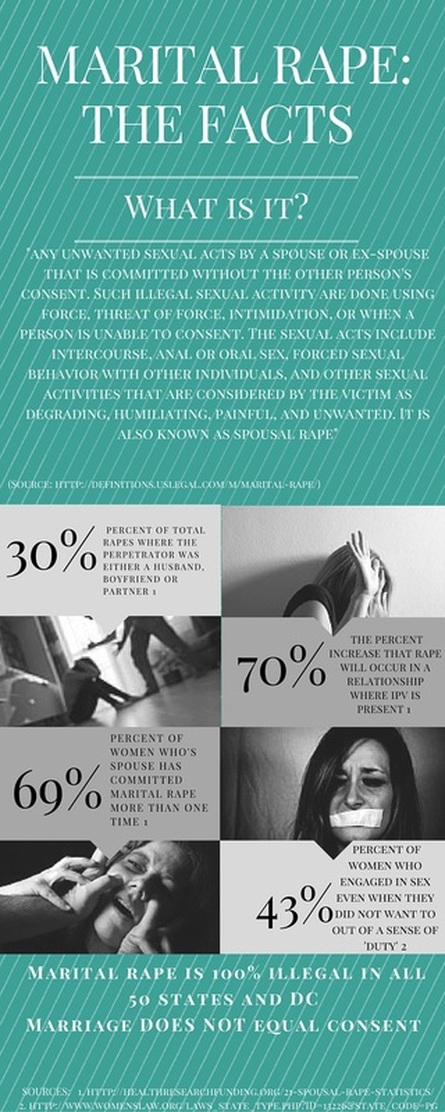
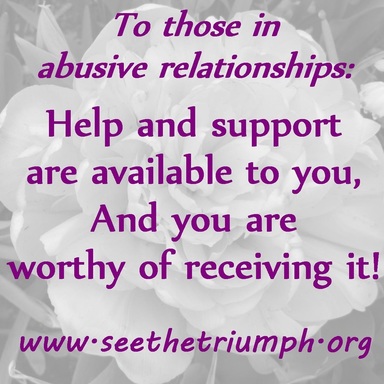
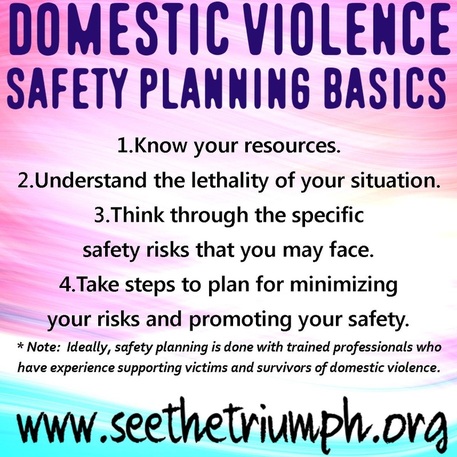

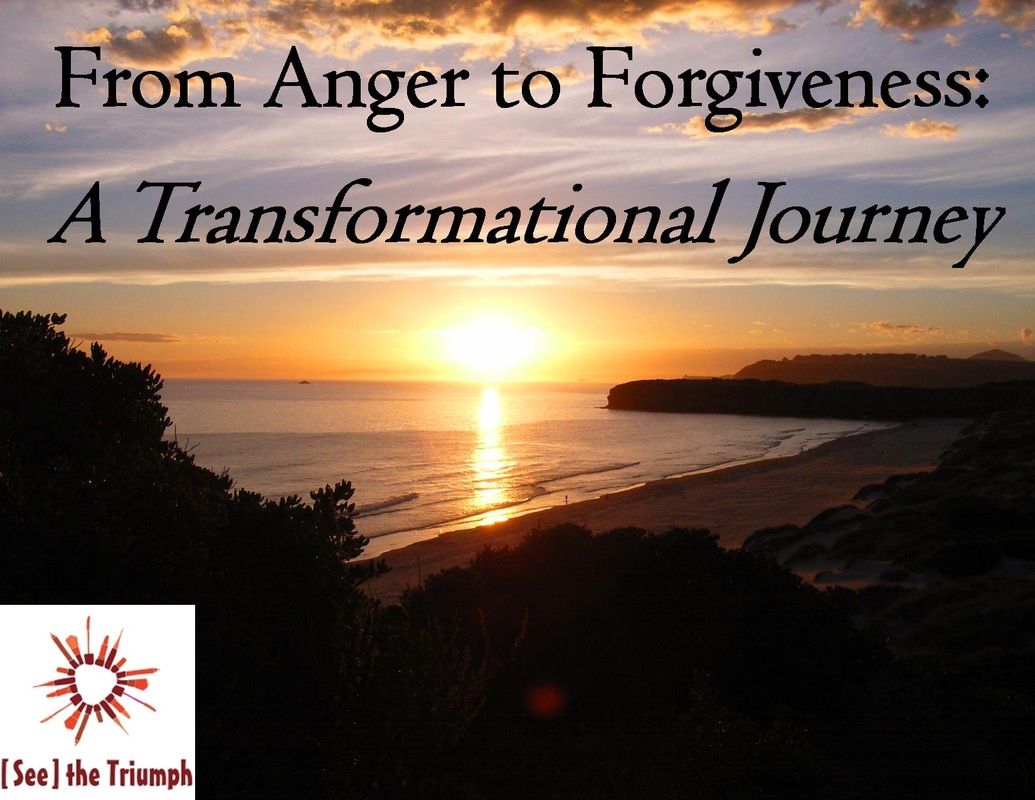

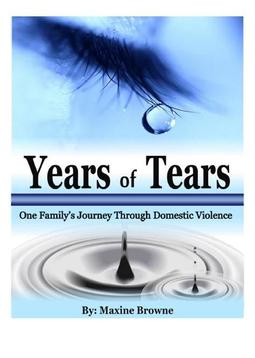
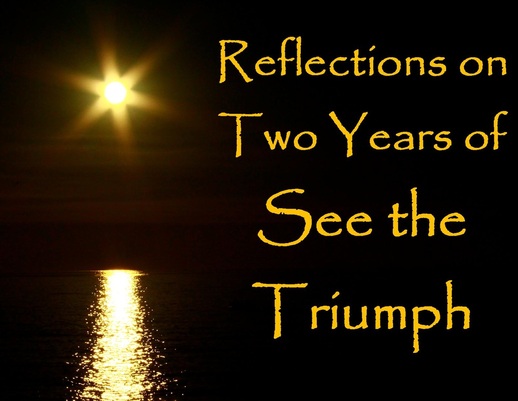
 RSS Feed
RSS Feed